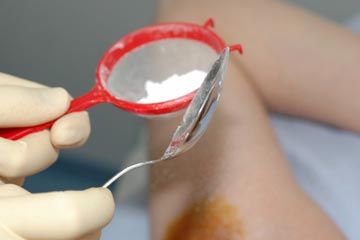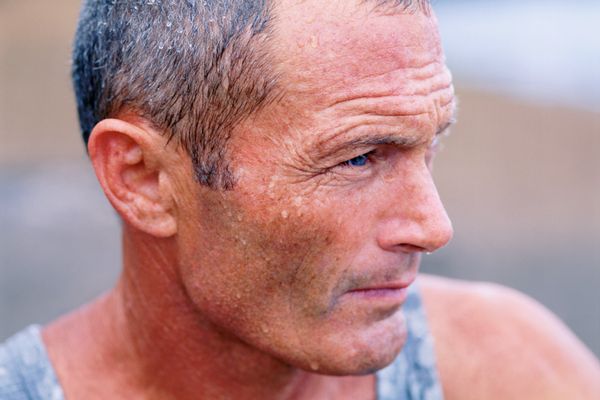If you're human, you sweat. It's one of those facts of life that most of us fight on a daily basis, a nuisance we could do without were it not for its crucial role in our survival. Sweat helps regulate our body temperature through evaporative cooling, kicking in when we exercise, get nervous, or find ourselves in Miami without air conditioning.
For some, though, sweat is much more than a nuisance. People with a condition called hyperhidrosis, also known as overactive sweat glands, sweat so much it interferes with their lives.
Advertisement
There are millions of sweat glands located all over the human body, and they come in two types: eccrine, found in places like hands, feet and armpits, secreting a thin, odorless liquid; and apocrine, found in armpits and the genital region, secreting a thick liquid that produces "body odor" when it meets bacteria on the skin. Hyperhidrosis mainly involves eccrine sweat glands.
In normal sweating, eccrine glands release enough sweat to maintain normal body temperature. In hyperhidrosis, the sweat glands produce three to four times more sweat than the body actually needs. People with hyperhidrosis may be afraid to shake hands with others, or may shy away from social situations entirely because they sweat so much. It can affect jobs, relationships and health -- chronic wetness can lead to skin irritation and bacterial and fungal infections.
About 3 percent of the population suffers from hyperhidrosis, according to the International Hyperhidrosis Society, and less than half of those people seek treatment for it, possibly due to embarrassment, or maybe because they don't realize their "sweating problem" is a treatable medical condition. In this article, we'll find out what hyperhidrosis looks like, why it happens, and how it's treated, looking at both medical and surgical options.
First, when does heavy sweating constitute a medical condition?
Advertisement





